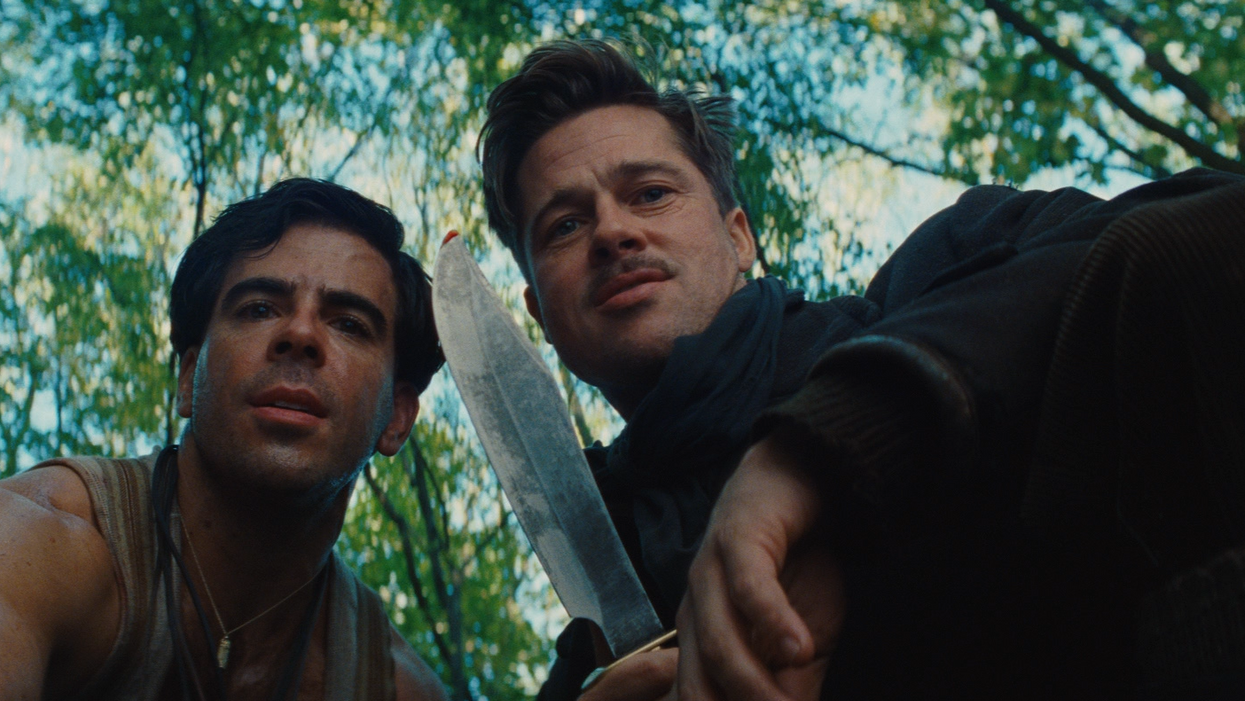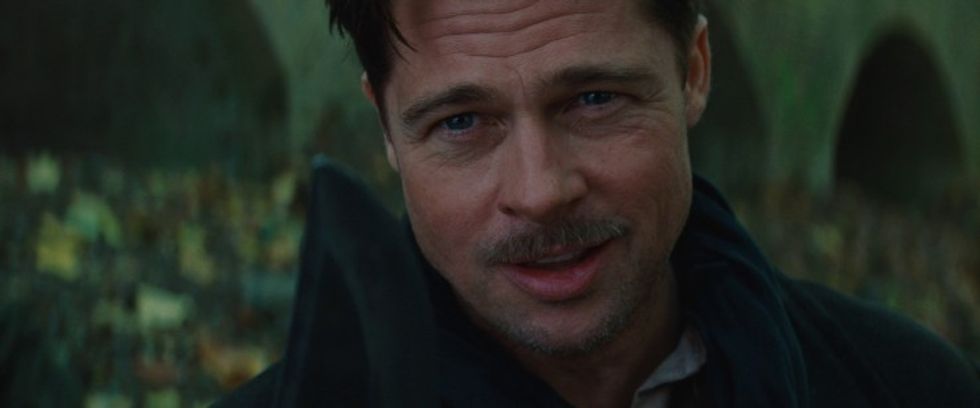7 Things You Can Learn From How Tarantino Wrote 'Inglourious Basterds'
How the legendary filmmaker approached the creation of arguably his best work.

With Once Upon A Time In Hollywood about to come out, it’s a great time to take a look back at Quentin Tarantino’s filmography. His most commercially successful film, Inglourious Basterds, was released in 2009 to universal acclaim and a whole lot of accolades. In another year, it might have even won Best Picture.
A movie like Inglourious Basterds doesn’t just pop into existence. It had to come from somewhere, and this new video from Behind The Curtain does a good job of showing us what the master director was thinking as he developed, write, and ultimately produced the project.
You can take a look at the video.
So what can we learn from Tarantino’s experience? Let’s dive in:
1. Pick The Right Project
In the video, Tarantino states that when he’s looking for a new project, he often goes back to books he’s made notes on, previous things he’s tried to adapt, and other potential works. In other words, he’s not just jumping into the first thing he finds on his desk.
When you’re looking for your next screenplay, make sure you take your time thinking it over. You’re going to devote years of your life to this thing, so it better be important.
2. It Has To Read Well
This is where Tarantino gets a little bit of a pass. In the video, he talks about how he’s focused on his script reading well, almost like a novel. He then acknowledges that sometimes he goes a little overboard because he has to adapt his own work into a workable movie.
As an acquisition executive in the international space, I’ve read and evaluated thousands of scripts that production companies are trying to turn into movies. One of the things I look for is if the writer of the script is also going to direct it. If the answer is yes, then I give them a little bit of a pass...after all, they’re kind of writing shorthand notes to themselves.
If you’re writing a script for someone else to direct, it has to be readable, but it also has to be makeable. You’re not Tarantino, so don’t write a novel.
3. Get To The Middle
Tarantino mentions that he doesn’t even know how the story will end until the characters get to the midpoint of the movie, and then they have to figure out how things will happen. But if you’ve done your job right, the middle will be so interesting to the audience that they’ll follow the story to the end.
4. Let Your Characters Bring It Home
Once he’s gotten to the midpoint, Tarantino then explains the second half of his process: letting the characters decide what happens. He’s done such a good job of breathing life into them that they can almost take over the story. For example, he originally thought Aldo would die...until he didn’t. Make sure your characters drive the plot and not the other way around.
5. Follow The Drama
Tarantino takes an organic approach to writing his scenes. He talks about how the scene in the basement bar wasn’t originally going to last for 40 minutes, but the tension and dramatic conflict kept ramping up, so he knew he could get away with it. Tarantino’s devotion to drama over everything else is what keeps his screenplays so consistently engaging.
6. Know Your Genre
This is one area that takes time to master. One of the things that makes Tarantino an exceptional filmmaker is his encyclopedic knowledge of film history. He’s seen so many movies, he’s internalized every convention, cliche, beat, and archetype. If you want to reach the same level, start studying!
7. The Journey Is Everything
Tarantino knows that a movie isn’t just about the climax; it’s also about how we get there. Whenever I work with screenwriters, I encourage them to think about what makes their movie fun for the whole two hours, not just the last ten minutes. Make sure everything that happens is dramatic and enjoyable, instead of a slog to a promised payoff.
Wrapping Up
Tarantino is one of the most acclaimed filmmakers of all time, but he’s said before that he really considers himself a writer. After hearing some of these tips, you may want to try following in his footsteps. Now go write something great!
Looking for more tips? Check out this article about writing a spec script!
Source: Behind the Curtain














